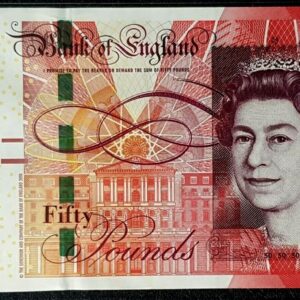British pound
The British Pound: A Resilient Currency with a Rich History
Introduction:
The British Pound, also known as GBP or Sterling, is one of the oldest and most widely traded currencies in the world. With a fascinating history and Tenduring strength. the pound has played a significant role in shaping the United Kingdom’s economy and global financial markets. In this article, we will explore the origins of the British Pound, its current status, and the factors that contribute to its resilience.
Historical Background:
The origins of the British Pound for sale can be traced back to the Anglo-Saxon period, when silver pennies were introduced as a form of currency. Over the centuries, the pound evolved, and in 1694, the Bank of England was established, solidifying the pound’s role as the official currency. Throughout history, the pound has weathered economic crises, wars, and political changes, demonstrating its durability and adaptability.
Strength and Stability:
The British Pound has long been recognized as a symbol of stability and credibility in the global financial markets. This is due to several factors, including the Bank of England’s independence.Its prudent monetary policies, and the UK’s strong legal and regulatory framework. These elements have helped maintain investor confidence in the pound. Making it an attractive currency for international trade and investment.
Global Reserve Currency:
The British Pound has traditionally held a prominent position as a global reserve currency. Alongside the US dollar and the euro. Many central banks and international institutions hold significant reserves of pounds. Which further enhances its stability and liquidity. This status facilitates international transactions and contributes to the pound’s strength in the foreign exchange market.
Impact of Brexit:
The decision of the United Kingdom to leave the European Union, commonly known as Brexit, has had a significant impact on the British Pound. Since the Brexit referendum in 2016, the pound has experienced volatility and fluctuations against other major currencies. Uncertainty surrounding the future relationship between the UK and the EU. As well as the potential economic consequences, have influenced investor sentiment and affected the pound’s value.
Economic Factors:
The value of the British Pound is influenced by various economic factors, including interest rates, inflation, and economic growth. The Bank of England plays a crucial role in managing these factors through its monetary policy decisions. Changes in interest rates, for example, can impact the pound’s value in relation to other currencies and affect investment flows into the UK.
Conclusion:
The British Pound has stood the test of time. Proving its resilience and adaptability in the face of economic and political challenges. Its historical significance, stability, and global recognition as a reserve currency have contributed to its enduring strength. While Brexit has introduced uncertainties, the pound remains an important currency in the global financial system. As the United Kingdom navigates its post-Brexit future, the British Pound will continue to play a vital role in shaping the country’s economic landscape.
Showing all 4 results










